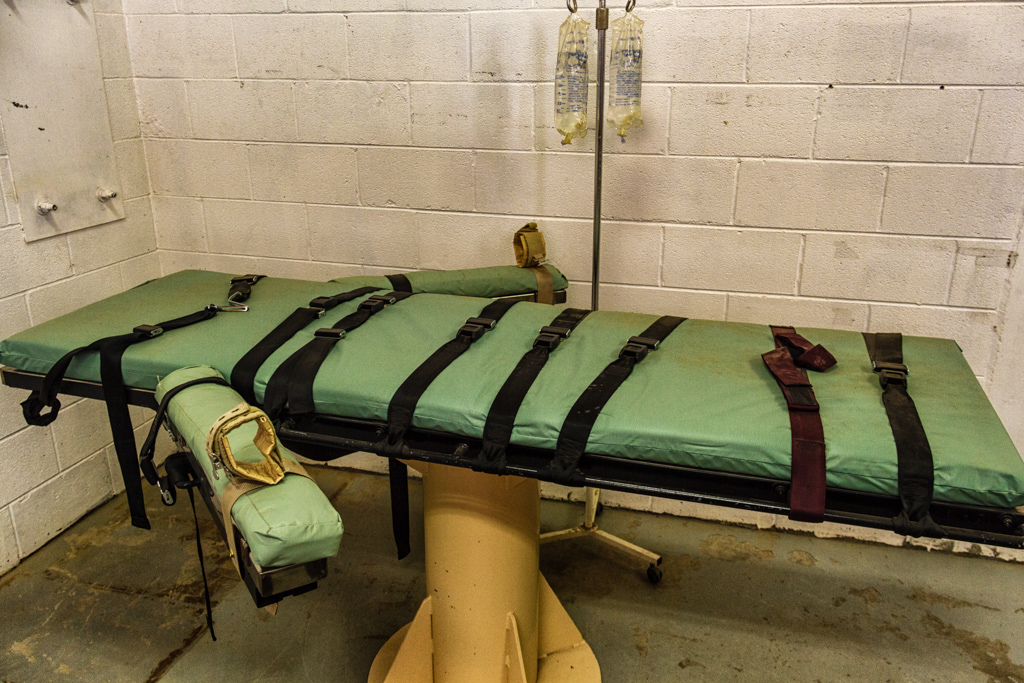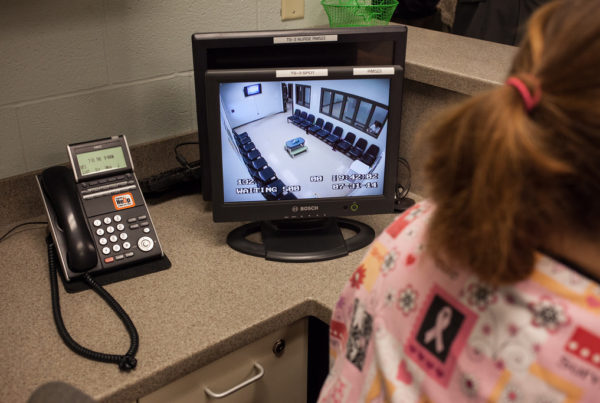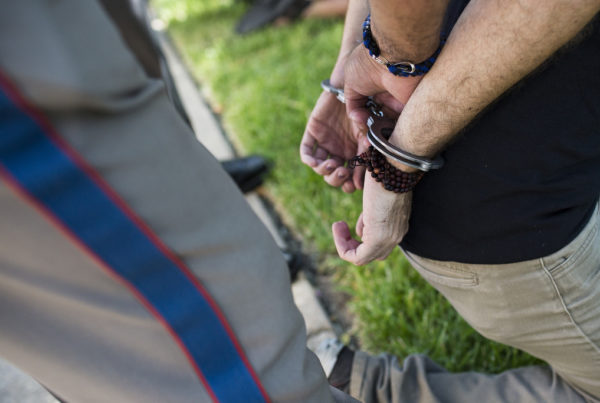Danny Bible is scheduled to die on June 27. He was sentenced to death in 2003 for murdering Houston resident Inez Deaton in 1979. Bible’s attorney, Jeremy Schepers, recently filed a lawsuit alleging that a lethal injection would almost certainly constitute cruel and unusual punishment. Schepers is a federal public defender in the Northern District of Texas.
“With this lawsuit that we’ve filed on Mr. Bible’s behalf, it has nothing to do with his conviction or his death sentence,” Schepers says. “It’s all about the method of execution.”
Bible’s situation is unique because, Schepers says, “Texas has never attempted to execute someone in his condition. He suffers from a wide variety of serious medical issues.”
While being transported to death row back in 2003, the van carrying Bible was involved in a collision that killed the driver and another passenger. Since then, Bible has used a wheelchair, and has developed a number of other serious medical conditions, including heart failure, coronary artery disease, Parkinson’s Disease, diabetes, and hypertension.
“And some of the side effects of these diseases are that at this point Mr. Bible’s veins are completely inaccessible and unsuitable for execution,” Schepers says.
He argues that, if Texas proceeds with the lethal injection, “That could lead to a number of serious complications. If they’re unable to locate a vein for execution, the vein itself could literally explode during the process if they’re not able to hit it correctly with the needle. And there’s also a possibility of just hours and hours of poking around and prodding with the needle trying to locate a suitable vein.”
Texas currently only allows for execution by lethal injection, though other states allow for alternate means. In the suit, Schepers identifies some of these that could be used on Bible, such as a firing squad or nitrogen gas.
However, the suit also pleads that “with a claim like Mr. Bible has, that only applies to one person, that he shouldn’t have to allege an alternative means of execution,” Schepers says. “And that’s something that is currently pending and is an open question before the Supreme Case in the [Russell] Bucklew case out of Missouri.”
In addition to the cruel and unusual punishment argument, Schepers says there is also a public policy issue here.
“I think it would be something that would undermine the public’s trust in the death penalty system itself. If you look at other states that have botched executions in recent years – for example, Oklahoma botched the execution of Clayton Lockett in 2014 – since then that state’s been in a moratorium for conducting executions,” Schepers says.
“So I think that anyone, regardless of your position on the death penalty, should be concerned about a botched execution, and even if you’re a proponent to the death penalty, should be concerned about a botch, because that could lead to the death penalty system grinding to a halt in Texas,” Schepers says.
After this interview was recorded on Friday, Attorney General Ken Paxton’s office responded to Bible’s suit, asking the court not to honor Bible’s request for an alternative means of execution. The attorney general says that Schepers’ real goal is to delay the execution as long as possible. The official response states that Texas has never had a botched execution, and that “Bible’s suit is less a genuine challenge to Texas lethal-injection protocol and more a meritless attempt to postpone his lawful execution.”
Written by Rachel Taube.














